A review of our Ongoing Grantees Programmes
Evaluation report - November 2024
- Published
- 03/12/2024
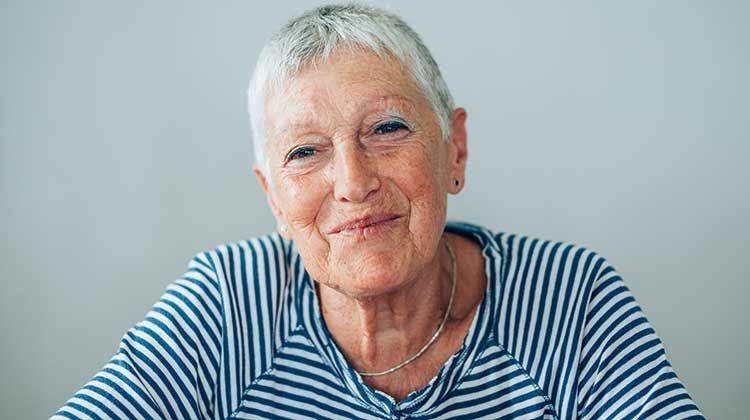
Foreword by Head of National Grants Programmes
- Project stages
- Project methodology
- Data collection
- Limitations
- Overview of the funds
- Grantee demographics
- The impact of Turn2us grants and support
- Grantee needs and wider circumstances
- Barriers to financial security

Foreword
At Turn2us, we are committed to supporting those facing financial hardship, as well as challenging the systems and perceptions that contribute to financial insecurity. Our goal is to reach those most affected by financial insecurity and drive systemic change to create a fairer society. We also want to break down the barriers that often force the poorest of us to bear the heaviest financial burden.
Since our founding in 1897, Turn2us has provided direct financial support through cash grants. As society has evolved over the last 127 years, so too has our approach to grant-making. In the last three years, we have moved away from processes that place a burden of proof on applicants to a model that prioritises trust, impact and empowering individuals.
Our Ongoing Grantees Programmes, the longest-running of our current grant-making initiatives, provide annual cash grants to around 500 people across the UK. Many of these grantees live with financial insecurity while managing complex health conditions, disabilities or caring responsibilities. Our relationships with them give us unique insights into their lives. It is our privilege to support these people during some of their most challenging times.
Although we no longer accept new applicants to these programmes, they remain an important part of our work. This review has largely been shaped by the experiences of our grantees, many of whom told us they feel forgotten by society. It has expanded our understanding of the long-term effects of financial insecurity and highlighted the importance of providing opportunities for grantees to help transform the systems that affect their lives.
The insights from this review will guide our support for ongoing grantees and our broader grant-making strategy in the future.
The stories shared by our grantees have been deeply moving, revealing their resilience, dignity and desire to contribute to their communities despite the challenges they face.
I want to thank everyone who participated. I hope this review reflects what we have learned.
I am grateful to the Turn2us team, including all those who contributed their time and expertise to the Advisory Group. I want to acknowledge our Grant Programmes Officers, Irene Behl, Paula Finn, Beverley Turner and Petra Kasparek, who support our ongoing grantees every day. And my special thanks to Rosie Collingbourne, Grant Programmes Manager, who led this project with sensitivity, consideration and diligence.
My thanks to Tracy Collier and Kay Orlopp-Cain of consultancy Action With Impact. Their work throughout the project has led to the findings in this report; we’re grateful for their collaborative approach. Thank you for the empathy and care you brought to the work.
I hope that sharing the insights and lessons from this review will help inform the work of others and deepen understanding of the long-term impact of financial insecurity on people’s lives.
Jules Tompkins
Head of National Grant Programmes
Our Ongoing Grantees Programmes, the longest-running of our current grant-making initiatives, provide annual cash grants to around 500 people across the UK.
Executive summary
This report presents the findings from an independent review of three of Turn2us’s long-term grant programmes: the Elizabeth Finn Fund, the Arthur Hurst Will Trust and the Edinburgh Trust Ongoing Grantees. At the time of this review, these programmes were supporting 476 people across the UK with annual cash grants, information and signposting.
The driver for this review was to understand how we could further the impact of these programmes in line with Turn2us’s strategy and help us determine their future direction. We wanted to:
- Get a better understanding of the impact of providing ongoing grant support for people experiencing financial insecurity.
- Look at the wider needs of people receiving ongoing grant support to help them move towards financial security.
To enable us to consider the options and make informed decisions about the future direction of the programmes, grantees completed surveys and spoke to us face to face to help us collate some key findings.
We discovered from their feedback that the grants provided a safety net, particularly in times of crisis; grantees’ quality of life and emotional wellbeing improved; and people felt that Turn2us treated them with dignity and respect.
More themes became apparent when we asked grantees about their personal circumstances and wider needs: within the last year, almost all grantees (95%) said they had health conditions or disabilities; 22% had caring responsibilities; 79% received benefits and had little control over their income; 18% had gone without food; and 46% had gone without heating or cooling.
Grantees also told us about their barriers to financial security, which included:
- Inadequate support systems.
- Social isolation and digital exclusion.
- The shame and stigma of having to apply for – or rely on – state benefits.
- The rising cost of living.
We found that the Ongoing Grantees Programmes aligned strongly with Turn2us’s Strategy 2023-2028. As such, we will be continuing to support the programmes and will make several adaptations to increase their impact.
Further learnings included:
- Ongoing grantees have specific needs that put them at greater risk of financial insecurity. While Turn2us has a positive impact on their lives, there are high levels of dependency on our support.
- While the Ongoing Grantees Programmes champion equality, diversity, inclusion and belonging (EDIB) for people with long-term health conditions and disabilities, grantees still face systemic barriers to financial security.
- Cash grants and high-quality signposting and referrals can reduce these barriers and empower grantees to take control of their lives.
- Turn2us is uniquely placed to help grantees find wider support.
- Grantees from the three programmes can help guide Turn2us as we push for systemic change to tackle long-term financial insecurity.
Introduction
This report presents the findings of a review into the impact of ongoing grant support delivered by Turn2us via three long-standing legacy programmes: the Elizabeth Finn Fund, the Arthur Hurst Will Trust, and the Edinburgh Trust Ongoing Grantees. At the time this report was written in June 2024, there were 476 individuals receiving ongoing financial support from these funds in the form of annual cash grants, information and signposting.
The review aimed to gain a better understanding of the impact of this support for people experiencing financial insecurity. It also looked at the wider needs of our grantees and what other types of support were available to them. By analysing this information, we could make better decisions about the future of these programmes.
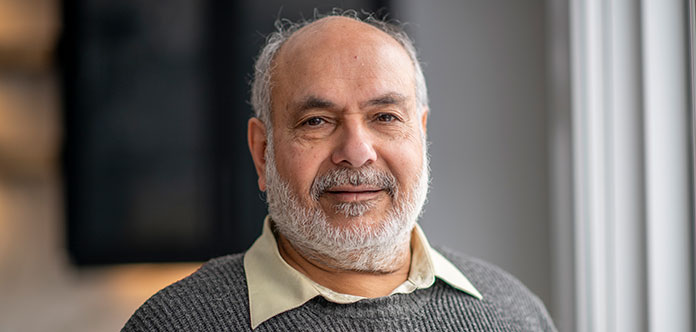
Project stages
The project was delivered in four stages between September 2023 and June 2024. The first phase involved sending surveys to existing grantees to assess the impact of the grants and look at the wider support available to them.
In phase two, we analysed the survey responses and conducted further interviews with grantees. We then came up with a list of recommendations, delivered a final report and made decisions about the future direction of the programmes.
Project methodology
There were four main components to the project methodology:
- Assessing the programmes’ alignment with the Turn2us Strategy 2023-2028: To offer high-quality information and support, to strengthen communities through place-based programmes (through the Edinburgh Trust) and to help build a fair and just economy through systems change.
- Basing the survey and interview questions and analysis on Turn2us’s Financial Security Definition to understand material, experiential and structural financial insecurity. The definition is as follows: Having enough money to live well now, and having the resources – as individuals and collectively – to build confidence in the future.
- Working collaboratively to include expertise from Turn2us staff, some of whom made up an Advisory Group to steer the project, as well as from our co-production partners who provided feedback on the language and content used in the letters, surveys and interviews.
- Considering the wider systems that impact individuals’ experiences.
- Structural security includes the resources people can draw on, such as benefit payments, an adequate minimum wage and affordable housing.
- Material security includes financial resources like income, savings and whether people own their own homes.
- Experiential security includes how we feel about our financial situation and the impact our finances have on our decision-making.
Data collection
We shared our anonymised grantee data with Action With Impact so they could gather information on grantee demographics (such as location and age), how long they had been receiving the grant and how much they were getting.
Paper and digital surveys were sent to all UK-based grantees, of whom 217 returned them (41%). There were also semi-structured interviews conducted with 28 ongoing grantees (5%). These sessions allowed us to dig deeper into grantees’ life experiences and provided a better understanding of their financial situation, the impact of Turn2us’s support and their wider needs.
Limitations
Turn2us’s records were not always up to date and information on grantees’ housing situation, marital status and household size was not always recorded. This limited our learnings from the data.
The review took 10 months, during which time Turn2us was also developing its model for financial security, revising its Theory of Change and introducing its first Equity, Diversity, Inclusion and Belonging strategy. This evaluation was therefore undertaken alongside these wider organisational changes.
Overview of the funds
The table below provides a summary of the support currently provided through the Ongoing Grantee Programmes:
|
|
Elizabeth Finn Fund
|
Arthur Hurst Will Trust
|
Edinburgh Trust
|
|---|---|---|---|
| Grantee numbers
|
368
|
5
|
103
|
| 2023-24 spend
|
£575,823
|
£11,275
|
£41,000
|
| Location
|
England, N. Ireland, Scotland, Wales (plus 14 overseas)
|
England only
|
Edinburgh only
|
| Origin
|
Long-term programme since 1897 (originally the Distressed Gentlefolk’s Aid Association for people of certain professions)
|
Ring-fenced fund from an individual’s will (1935)
|
Transferred from Edinburgh Council in 2011
|
| Current financial support for grantees (per annum)
|
Annual grant
Individuals: £1,180 Grantees with dependents: £1,810 Some grantees receive regular top-up grants for things like transport costs or home help. There are additional one-off grants available for specific items, such as white goods and mobility costs. |
Annual grant
£1,650 flexible grant for a single person Some grantees receive regular top-up grants for things like transport costs or home help. |
Annual grant
Individuals: £300 (split over two payments of £150). Around 10 people also get extra top-up payments of approximately £300 per person |
| Current non-financial support and review processes
|
Grantees receive an annual phone call from Grant Programme Officers that combines a light-touch review to ensure their circumstances haven’t changed with supportive check-in to provide signposting where appropriate.
|
Grantees receive an annual phone call from Grant Programme Officers that combines a light-touch review to ensure their circumstances haven’t changed with a supportive check-in to provide signposting where appropriate.
|
Grantees receive written contact every two years and a light-touch review, but no signposting or other support is provided. |
The number of grantees in the programmes is steadily decreasing due to their ageing demographic.
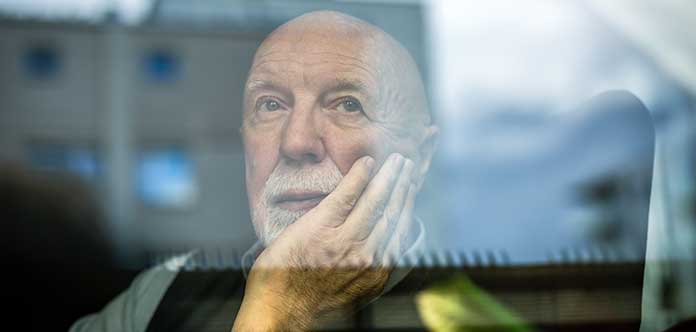
Grantee demographics
The figures below provide valuable data on the demographics of the ongoing grantees. They have been taken from Turn2us’s data and from the survey responses (this information was not available for a small percentage of grantees, including those who chose not to answer some or all of these questions):
- 68% of grantees are women.
- 29% are men.
- 88% of survey respondents identify as White British with smaller percentages from Asian, Black and other ethnic backgrounds.
- 74% identify as heterosexual and 8% identify as lesbian, gay or bi-sexual (LGBTQ+).
Religion
The majority identify as Christian (56%), followed by those with no religion (21%), while a small number practised other religions.
- 21% have no religion.
- 56% identify as Christian.
Age
All three funds support a large number of older grantees, with the majority being over 70 years of age:
Edinburgh Trust Ongoing Grantees: 44 - Youngest person; 76 - Average age; 97 - Oldest person
Elizabeth Finn Fund & Arthur Hurst Will Trust: 36 - Youngest person; 69 - Average age; 93 - Oldest person
Location
8% of grantees live in Wales and Northern Ireland.
2% live overseas.
27% of grantees live in Scotland.
63% of grantees live in England.

Findings and insights
Unless stated otherwise, these findings and insights are relevant to all three Ongoing Grantee Programmes.
The impact of Turn2us grants and support
Having surveyed or spoken to more than 200 of the grantees, we found there were seven key findings:
- Turn2us plays a vital role in grantees’ financial resilience.
- The grants can provide a safety net in times of crisis or when unexpected life shocks occur.
- The grants have a positive impact on the grantees’ quality of life and emotional wellbeing, which often extends beyond the grantees themselves.
- The grants help people live what some have described as a 'normal life'.
- Grantees depend on the support from Turn2us.
- Grantees feel that Turn2us treats them with dignity and respect.
- Grantees need more information about what support is available to them, both from Turn2us and in a wider context.
Key finding 1: Turn2us plays a vital role in grantees’ financial resilience
At a time when the cost of living is still increasing, the grants help improve people’s financial resilience and prevent them falling into debt.
65% of those surveyed felt that Turn2us had supported their material needs in terms of financial security.
42% felt that the grants helped them meet their everyday living expenses, including their rent, bills, food, clothing and energy costs.
29% felt that the grants helped them meet unexpected costs like essential house repairs or car maintenance.
11% of those surveyed said that the money helped them enjoy simple pleasures such as taking a day trip, enjoying their hobbies or buying gifts for their families.
7% felt that the grants gave them access to emergency funds.
1% felt that the money helped them manage their debts.
The support from Turn2us has given me a sense of financial security which has helped to alleviate the constant worry of depending on the DWP.
Key finding 2: The grants can provide a safety net in times of crisis or when unexpected life shocks occur
Many grantees told us that the grants had provided a financial safety net at a moment of real crisis in their lives.
This included helping them cope with accidents and injuries; relationship breakdowns; rising debt; poor mental health; and losing their jobs or being unable to work. The grantees also said that knowing the support was there when they needed it had given them a sense of financial security.
57% of those we spoke to referred to Turn2us as a safety net.
30% of those who returned the survey said they had been able to access extra funds when needed.
7% of survey respondents said the grants helped them access funds in an emergency.
It's very reassuring, you don't feel exposed to the forces of random chance. You have some bit of money and support to manage what life might throw at you.
Key finding 3: The grants have a positive impact on the grantees’ quality of life and emotional wellbeing, which often extends beyond the grantees themselves
Grantees often credit Turn2us with providing the financial stability that allows them to help their children flourish. A third of the people we spoke to were single mothers who had been supported by Turn2us after their relationships broke down.
Many had been unable to work due to taking on all the childcare responsibilities, while others had been subjected to domestic and/or financial abuse by their partners. Grantees who had raised their children alone said the funds allowed them to pay their rent and bills, buy food, clear debts, provide stability for their family and reduce their anxiety.
The grants also help grantees support their wider family and friends, such as giving neighbours a lift to appointments or cooking meals for people in the community who were also suffering from financial insecurity. Indeed, 30% of those we spoke to mentioned giving something back to the community to support others.
I hope I've made it clear I would not have survived, neither would have my children. They would all have ended up a wreck, in services.
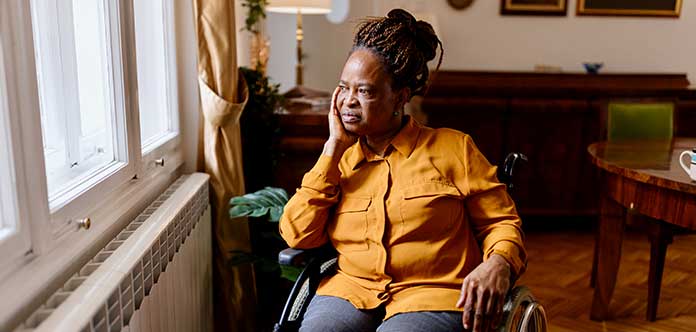
Key finding 4: The grants help people live a normal life
The grants help people to get by and live what some describe as a ‘normal life’. By providing grantees with the means to stay warm and independent, they enjoy greater peace of mind.
The grants also support people’s emotional wellbeing and help them feel less isolated, sleep better, make home improvements, take short breaks and enjoy more time with friends.
It must be recognised, however, that some grantees still find it hard to get by. Half of those interviewed reported needing to manage their finances creatively, including tracking their expenses and looking for the best prices, cooking in batches, avoiding using their credit cards, growing their own vegetables, and repairing or swapping clothes.
Others felt that restricting their spending and having to choose between essential living expenses, such as heating and eating, negatively affected their mental health.
I feel as though I'm a normal person. Even, as I said, doing my little hobbies, I can afford that, it means I can do that and it makes a difference as I'm doing something that I'm enjoying and achieving.
Key finding 5: Grantees depend on the support from Turn2us
Turn2us provides grantees with support to help them move towards financial security and overcome traumatic life experiences. In some cases, Turn2us had supported ongoing grantees for over 20 years and one survey respondent had been receiving funds for over 40 years.
- 58% of respondents had been receiving financial support for more than 10 years.
- 32% of respondents had been receiving support for 5-10 years.
- 3% of survey respondents had been receiving support for less than five years.
Some grantees felt anxious in the months leading up to the annual review. Their feelings about the future depended on whether the grant was going to be there for them. Many explained that they would struggle without the grant, not only from a financial perspective but also from the loss of relationship with Turn2us.
12% of survey respondents who received grants from the Elizabeth Finn Fund or Arthur Hurst Will Trust communicated with Turn2us every two or three months and sometimes more frequently.
While the majority of survey respondents communicated with Turn2us only once or twice a year, they still reported that Turn2us had a positive impact on their wellbeing (it should be noted that Edinburgh Trust ongoing grantees receive an annual grant but are not offered the same information and signposting services as Elizabeth Finn Fund and Arthur Hurst Will Trust grantees).
... what is horrible is, I have stayed in need, I have got progressively more disabled and unable to work. So the fact that this [Turn2us] has been there has allowed me to keep my head above water.
Key finding 6: Grantees feel that Turn2us treats them with dignity and respect
Grantees often felt invisible and overlooked by society. They also spoke of the shame and stigma of applying for benefits, as well as being questioned or judged by others about how they lived.
Turn2us helps people feel valued, supported and respected by others. Grantees have welcomed the shift towards a trust-based system where applying for funds no longer requires them to provide bank statements.
During the interviews, they also explained how their interactions with Turn2us’s Grant Programme Officers had been a positive experience:
- Turn2us provides a listening ear (empathy, kindness, reassurance).
- There’s a personal connection (Turn2us remembers grantees’ circumstances).
- Turn2us treats people with dignity and respect and doesn’t judge them.
- Turn2us provides financial support through its grants in times of crisis, as well as helpful signposting to the support available from other organisations and information on how to claim benefits.
Grantees acknowledged that while everyone has different needs, making more connections and accessing more support would be beneficial. They felt Turn2us could provide more opportunities for them to share their experiences with people in power, so that they remained visible in society. Many grantees wanted to share their stories to raise awareness of how people like them experienced financial insecurity.
They've encouraged me all the way, when I didn't have friends. Now I've got friends and a life, I wonder if I would have made it the same if I didn't have their help and continue to have their help.
Key finding 7: Grantees need more information about what support is available to them, both from Turn2us and in a wider context
As well as the annual grants, the Elizabeth Finn Fund and Arthur Hurst Will Trust provide extra funds to ongoing grantees at times of crisis. They also offer information and signposting to external organisations for additional support. 30% of survey respondents had received these extra grants, 21% had received help understanding the benefits system, and 18% had learnt about other organisations offering wider support.
Additional grants from the existing Elizabeth Finn Fund are not advertised and are only provided if a grantee explains they are struggling and asks for extra help. This can create a lack of transparency and could be a barrier to access because some people who need extra help may not ask for it.
While Grant Programme Officers do an excellent job of building relationships with the people they support, Turn2us could make information about the extra grants more widely available to ongoing grantees. They could also look at how to make other forms of support more accessible to grantees.

It is always difficult to ask for help even though sometimes it is unavoidable ... It would be helpful and less demoralising if a list of other services were made available and sent to us ... rather than having to ask.
Grantee needs and wider circumstances
As we developed a better understanding of the needs and circumstances of the grantees, five themes emerged from the survey responses:
Health conditions and disabilities
95% of ongoing grantees said they had a long-term health condition or disability within the last year.
Caring responsibilities
22% had caring responsibilities within the last year.
Loneliness and isolation
53% felt lonely or isolated within the last year.
Fear, shame and stigma
79% received benefits and had limited control over their income.
Financial insecurity
92% were financially insecure, 18% had gone without food and 46% had gone without heating or cooling within the last year.
Due to their health conditions, both my parents are housebound. I need extra heating and that with my condition, so it’s a toss between eating and heating. As you know, the heating is going through the roof. It's not a very good year.
Health conditions and disabilities
Of those who told us that they were living with health conditions or disabilities, 66% struggled with their mobility, 43% had problems with their stamina/breathing, 39% had mental-health issues, 28% had poor hearing, 15% had poor eyesight and 14% were suffering cognitive impairment. Several grantees also suffered from cancer, chronic pain and other long-term disabilities.
While some survey respondents and interviewees lived in affordable social or sheltered housing, others had little choice over where they lived and told us that their homes were unsuitable for people with their health needs.
Some felt social services dictated the amount of care they were entitled to or what amenities were deemed essential, both of which negatively affected their wellbeing.
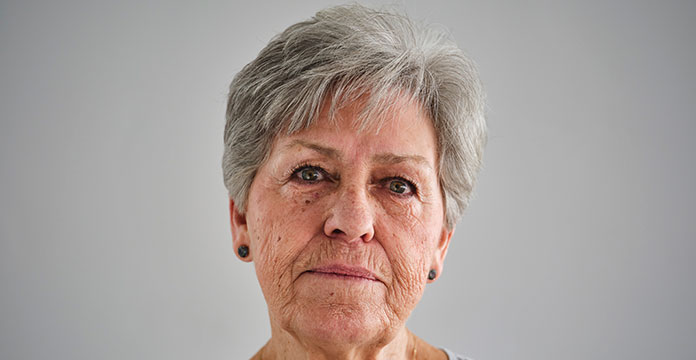
Caring responsibilities
One in four Elizabeth Finn Fund and Arthur Hurst Will Trust grantees who completed the survey told us that they were carers. For those receiving grants from the Edinburgh Trust, the figure was one in ten.
We discovered that carers faced additional barriers to financial security. For example, they often had fewer work opportunities and increased living expenses. 53% of grantees who were carers were of working age (i.e. under 65) and those who were in good health expressed a strong desire to work. However, largely because of the limitations on how many hours they could work and remain eligible for Carers’ Allowance, they felt trapped in a system that was working against them.
Some carers, on the other hand, were older: 75% of Edinburgh Trust carers were over 66 and 15% of all carers were aged between 81 and 95.
They were all concerned about how they would cope with higher energy bills and everyday costs. They were also worried about what would happen to the people they cared for if their own health deteriorated.
None of the carers we spoke to felt financially secure or were able to save for the long term, whereas 8% of grantees overall had some sense of financial security and 1.8% were able to save for the long term. 53% of carers were more likely to be finding it difficult or very difficult to get by compared with 35% of grantees overall. Carers were also more likely to have experienced negative life events in the past year. For example:
- 79% of carers had been dealing with a significant health issue in the previous 12 months (compared with 72% of all grantees).
- 64% felt isolated or lonely (53% across all grantees).
- 60% had been without heating/cooling (43% across all grantees).
- 55% had mental-health problems (38% across all grantees).
- 28% had been without food (18% across all grantees).
- 28% had suffered a loss/reduction of income (16% across all grantees).
These figures show that carers have significantly more physical and mental-health issues, and they are also disproportionately affected by low incomes and an inability to meet their basic needs.
Loneliness and isolation
53% of survey respondents reported feeling lonely or isolated in the last 12 months. Poor physical and mental health, caring responsibilities and difficulty accessing social care support meant that many grantees had few social connections. Some were afraid to leave their homes, especially if they had mobility issues or other health problems.
84% of survey respondents communicated with Turn2us once or twice a year, and everyone who took part in the interviews appreciated this contact. One in five grantees were not receiving any other support and it was clear they would have liked more help making connections within the wider community. Again, Edinburgh Trust grantees are not offered the same information and signposting so they had less contact with Turn2us than the other grantees.
Of the Edinburgh Trust grantees who responded to the survey, 71% received government benefits, 40% had help from family and friends, 14% had physical-health support, 10% had mental-health support, support from neighbours or received groceries from foodbanks, and 7% had financial support from other charities. Nearly a quarter (24%) had no other external support.
Of those Elizabeth Finn Fund and Arthur Hurst Will Trust grantees who responded to the survey, 81% received government benefits, 33% had help from family and friends, 39% had physical-health support, 17% had mental-health support, 11% had support from neighbours or foodbanks, and 4% had financial support from other charities. A fifth (20%) had no other external support.
Having friends and family on hand to lend support gave grantees a greater sense of wellbeing. However, digital exclusion (not knowing enough about – or a lack of confidence using – technology) contributed to loneliness and isolation. Only one person told us that they were confident using technology to pay their bills, shop or do their banking online.
Fear, shame and stigma
Expressions of fear, shame and stigma were apparent at various points in the review process and many people didn’t discuss their financial situation with their families. There was also a sense that some people felt they simply had to accept that this was their lot in life and they should try to make the best of it.
For 79% of grantees who responded to the survey, their only source of income was state benefits. Some of them spoke to us about how they internalised the shame of applying for benefits, while others referred to instances where they had been questioned or judged by others about how they spent their money.
Some grantees’ health had deteriorated but they didn’t know if there was any additional support available to help them with this. Others were too afraid to reach out in case it led to a reduction in their benefits. Turn2us can support grantees to overcome their fear and shame by making information and signposting more accessible.
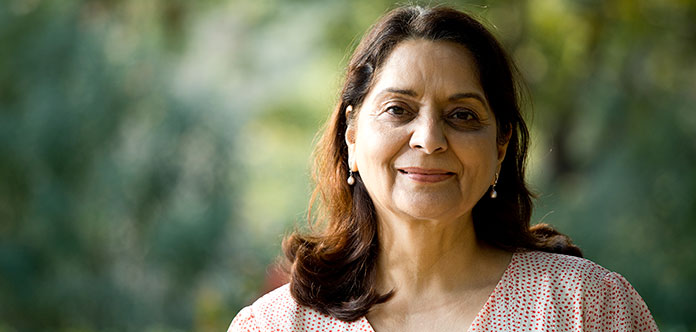
Now I am housebound, and I can't get anywhere. I have problems with eating, problems with carers. I pay the carers £500 per month and they are really not fit for purpose. It's so difficult in social care now.
Financial insecurity
78% of the Edinburgh Trust grantees and 96% of the Elizabeth Finn Fund and Arthur Hurst Will Trust grantees who replied to the survey were experiencing financial insecurity, with the overall figure averaging at 92%. This means that more than 9 in 10 respondents did not have enough income to cover their essential monthly needs and were unable to save for the long term:
- Only 3.7% of those who replied to the survey described their financial situation as ‘comfortable’.
- Almost 40% were only ‘just getting by’.
- 35% were ‘finding it difficult’ or ‘very difficult’ to cover their basic needs with their monthly income.
- Nearly 19% said they were ‘doing all right’ financially.
- Saving levels were very low, with 70% of people unable to save at all, only 15% able to save for the short term, and 1.8% for the long term (21% of Edinburgh Trust respondents felt able to save for the long term).
- Of those who could be described as financially secure (i.e. they were either getting by each month, were doing all right or were living comfortably), less than 6% said they were able to save for the short and long term.
- 98% felt that they would not be financially better off in a year’s time.
People’s feelings about the future were largely influenced by increasing bills and everyday expenses, poor health, uncertainty in the economy, fears about changes to government benefits, and a general feeling of being stuck.
Everything has gone up so much. I’m not the only one not eating properly, you have to do your best don’t you.
Barriers to financial security
Many grantees are at higher risk of experiencing financial insecurity, and many also face the following barriers:
- Complex, inaccessible and/or inadequate support systems, such as welfare benefits, social care and suitable housing.
- A lack of access to or knowledge about the advice and support available to help them navigate these systems.
- Shame and stigma prevent grantees from asking for help or talking about their situation.
- Digital exclusion and social isolation make people feel invisible and excluded from society.
- Long-term health conditions, disabilities and/or caring responsibilities can trap grantees in a system that should be designed to help them.
- The rising cost of living is forcing some grantees to choose between heating or eating.
For most grantees, these barriers compound one another and make it more difficult to reach financial security, and some carers also have their own long-term health conditions and disabilities. Accessing complex support systems without specialist advice puts many people off trying to obtain the support they really need.
The stigma attached to living with financial hardship also prevents some grantees accessing resources they need and makes them feel invisible, unequal and excluded. Overcoming these challenges requires a multifaceted approach.
Support options
Throughout this review we have learnt about grantees’ circumstances and their barriers to financial security. Taking these learnings into consideration, we believe the following actions can increase the impact of our support:
| Learning | Action |
|---|---|
| Due to their circumstances, 79% of ongoing grantees are receiving government benefits, with little or limited control over their income. | We will regularly review the level of our grants in line with inflation and other factors impacting the cost of living to ensure we can continue to help people manage rising expenses. |
| Most ongoing grantees do not have a ‘safety net’ to fall back on in times of crisis and some do not want to ask for help due to feelings of shame and stigma. | We will increase the flexibility of support available for people in crisis or after a life changing event. We will ensure these grants are easily accessible and understood by grantees. We will also continue to challenge the shame and stigma that are often experienced alongside financial insecurity through our systems change work. |
| Some grantees were unclear about what support is available to them and others found it hard to navigate complex systems, such as the social care and benefits systems. This is further compounded by high levels of isolation and digital exclusion. | We will provide clear information about the support available to grantees, both from Turn2us and externally, and we will look for ways to increase accessibility to this support. |
| Some grantees told us they often feel ‘invisible’ or forgotten by society. | We will increase the opportunities for grantees to have their voices heard and participate in our systems change work. |
| Most grantees would struggle if the grant was removed, and some feel anxious when their grant is reviewed each year. | We will continue to deliver these programmes for the current strategy period, until 2028, after which time we will review them again. We will also look at whether an annual review of grantees’ circumstances is really needed. |
Future of the programmes
Throughout this review, we have discovered ways that Turn2us could empower grantees to further overcome the barriers to financial security. These ideas came from the grantees themselves, from the Turn2us grants teams, and from the project’s Advisory Group.
We created a framework to guide the Advisory Group as they analysed and developed these ideas, ensuring key components were considered and decisions were objective and consistent. The framework had four main pillars:
- Alignment of the programmes with the Turn2us strategy, including the definition of financial security; consideration of safeguarding risks; and equity, diversity, inclusion and belonging (EDIB).
- The impact of the grants and the needs of the grantees.
- The financial resources available.
- Other available resources and our capacity for providing wider support.
We also took into consideration the declining numbers of grantees on the Ongoing Grantee Programmes, as well as the impracticality of reopening the programmes to new applicants due to budget constraints.
After detailed discussions with all stakeholders, we decided that all three Ongoing Grantee Programmes should continue to support our current grantees. The programmes will be reviewed again at the end of the current strategy period in 2028.
Adaptations will be made to the Elizabeth Finn Fund and Arther Hurst Will Trust programmes to build on their strategic alignment, develop deeper and more integrated support and increase the programmes’ impact and visibility.
The Edinburgh Trust Committee will look separately at how the learnings from this review can be implemented for the Edinburgh Trust Ongoing Grantees Programme.
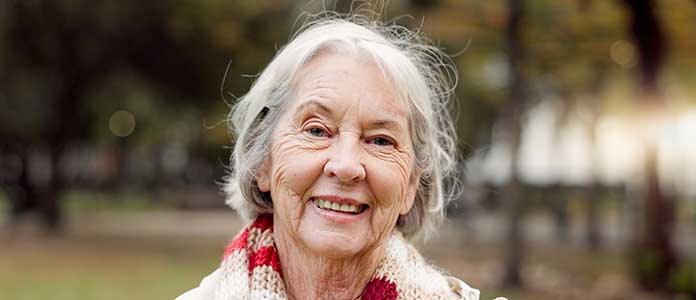
How the Ongoing Grant Programmes support the delivery of our strategy
Turn2us’s strategy sets out a vision where everyone in the UK has financial security so that they can thrive. We want to improve financial security for individuals and communities most affected by financial insecurity.
The Ongoing Grantee Programmes support people with health conditions, disabilities and caring responsibilities, as well as an ageing demographic – these are some of the groups most likely to face systemic barriers to financial security.
Turn2us is championing equity, diversity, inclusion and belonging by continuing our support for ongoing grantees and is upholding human rights by focusing on their wellbeing, safeguarding and support needs.
Grantees from the three programmes have provided unique insights into long-term financial insecurity, digital exclusion, shame and stigma, and systemic injustices.
Understanding their experiences can help us influence systems change and address the underlying causes of long-term financial insecurity.
We hope that continuing our cash grants, increasing the impact of our signposting and support, and providing more opportunities for grantees to amplify their voices and share their stories will empower them to take further control of their lives and move closer towards financial security and thriving.
The images of people included in this report are for illustrative purposes only and do not depict actual grantees. These images are sourced from stock photography to protect the privacy and dignity of our service users.
All insights shared in this report are anonymous. The experiences discussed come from interviews conducted by Action With Impact on behalf of Turn2us, with all specific details modified to protect our grantees’ privacy. Our commitment to confidentiality is as strong as our commitment to sharing these powerful stories.